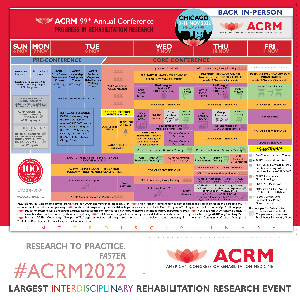Back
Neuroplasticity (includes neuroscience)
Neuroscience of Subjective Tinnitus: Proposed Etiology
Wednesday, November 9, 2022
3:00 PM – 3:05 PM
Location: Station 7
- DB
David Benitez, M.S.
PsyD Student
Albizu University
Miami, Florida, United States 
Rita M. Rivera, M.S.
PsyD Student
Albizu University
Plantation, Florida, United States
Presenting Author(s)
Objective(s): The purpose of this systematic review was to introduce a foundational hypothesis concerning the pathophysiology of subjective tinnitus and to define it as a neurological disorder.
Data Sources: This review was conducted using the following databases: Science Direct, Google Scholar, and ProQuest Central. Inclusion criteria consisted of peer-reviewed articles published in English between the years 2010-2021. Keywords for the search included tinnitus, etiology, micro-infarct, auditory cortex, maladaptive plasticity, neuroplasticity, neurotransmission.
Study Selection: Literature Review
Data Extraction: Independent extraction by multiple observers.
Data Synthesis: Tinnitus, commonly known as “ringing in the ears,” is a phantom sound phenomenon that disrupts the quality of life of approximately 50 million individuals across the US (Henton & Tzounopoulos, 2021). Tinnitus is described as a heterogeneous condition in terms of presentation, etiology, and severity. Tinnitus is currently not well understood with many speculative etiological interpretations and with little to no effective forms of treatment in the field of medicine. It is theorized that tinnitus is caused by one or multiple micro-infarctions within the brain's auditory cortex and that maladaptive plasticity plays a key role in the development of tinnitus as a symptom. This occurs within a scenario where neuroplasticity fails to make up for the lack of neural input from microscopic lesions of cellular death, thus disrupting the neuronal electrochemical flow (neurotransmission) between previously established neural pathways.
Conclusions: This report provides substantial evidence for why the proposed hypothesis is sound, highlights the need to develop reliable diagnostics to verify its accuracy, and subsequently seeks to explore appropriate pharmacological and other interventions that may effectively provide relief to populations afflicted with this condition.
Author(s) Disclosures: The authors have no disclosures.
Data Sources: This review was conducted using the following databases: Science Direct, Google Scholar, and ProQuest Central. Inclusion criteria consisted of peer-reviewed articles published in English between the years 2010-2021. Keywords for the search included tinnitus, etiology, micro-infarct, auditory cortex, maladaptive plasticity, neuroplasticity, neurotransmission.
Study Selection: Literature Review
Data Extraction: Independent extraction by multiple observers.
Data Synthesis: Tinnitus, commonly known as “ringing in the ears,” is a phantom sound phenomenon that disrupts the quality of life of approximately 50 million individuals across the US (Henton & Tzounopoulos, 2021). Tinnitus is described as a heterogeneous condition in terms of presentation, etiology, and severity. Tinnitus is currently not well understood with many speculative etiological interpretations and with little to no effective forms of treatment in the field of medicine. It is theorized that tinnitus is caused by one or multiple micro-infarctions within the brain's auditory cortex and that maladaptive plasticity plays a key role in the development of tinnitus as a symptom. This occurs within a scenario where neuroplasticity fails to make up for the lack of neural input from microscopic lesions of cellular death, thus disrupting the neuronal electrochemical flow (neurotransmission) between previously established neural pathways.
Conclusions: This report provides substantial evidence for why the proposed hypothesis is sound, highlights the need to develop reliable diagnostics to verify its accuracy, and subsequently seeks to explore appropriate pharmacological and other interventions that may effectively provide relief to populations afflicted with this condition.
Author(s) Disclosures: The authors have no disclosures.
Learning Objectives:
- Upon completion, participants will be able to have an enhanced understanding of tinnitus etiology.
- Upon completion, participants will be able to have an enhanced understanding of possible treatment recommendations for tinnitus.
- Upon completion, participants will demonstrate understanding regarding the clinical implications of working with aging/military/brain injury populations diagnosed with tinnitus.

.jpg)
